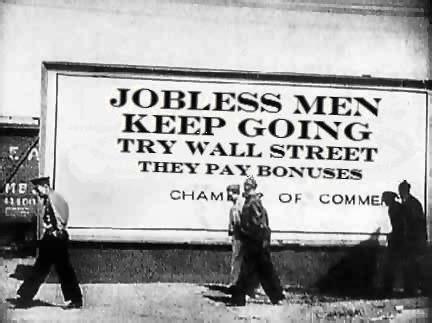Being a social media influencer has become far more than just a hobby. Thousands of people are able to call social media their careers, making large sums of money through brand deals and sponsorships. In relying on popularity and views to fuel their successes, influencers must find ways to create engagement in their content to muster up interest. While this is often done by doing something exciting like traveling or collaborating with other content creators, a certain sect of the internet has found another way: the exploitation of their children.
Family YouTube, Tiktok, and Instagram accounts have become wildly popular and concerningly common in recent years, amassing millions of views. These views, of course, lead to revenue, but this is done at the expense of the children featured in the content. The children of family content creators are often forced to give up their privacy and face the scrutiny of the internet at alarmingly young ages. Their most precious life events are used as content, yet they do not see a single penny of the revenue they are forced to create. Not only must we, as a society, push for legislation to prevent the exploitation of these children, but we must also look critically at the consequences of our consumption.
The origins of family-centered content date back to YouTube’s origin, when many parents began posting home videos to pass the time. However, this hobby would eventually turn into a profession, generating thousands of dollars in profit. While many of these channels have become irrelevant as their child-stars have reached adulthood, some families have been able to create long-term careers.
Mindy McKnight is one mom who’s done this through her YouTube account, CuteGirlsHairstyles. Using her daughters as models for her hair tutorials, she has amassed an internet empire. Since starting her YouTube channel, McKnight has created a haircare line and three of her six children are now major content creators.
Her oldest daughters now run a YouTube channel with over seven million subscribers and own both a mascara brand and a skincare brand. The twins recently spoke about their upbringing on the Unplanned podcast, stating that while their upbringing was unique, they were lucky to have parents who supported their right to privacy if they so chose, and compensated them financially for their appearances in videos. They also noted that while they grew up under the eyes of the internet, they grew up in an earlier era, where sponsorships and brand deals were less common and where their parents didn’t need to take their content seriously to bring in revenue. Even though the McKnight children still face the scrutiny and negativity that come from having an online presence, their parents were able to provide them with autonomy and financial compensation, making them an exception to an incredibly dangerous rule.
Unlike that of the McKnight family, most family-centered content relies on the exploitation and manipulation of children’s emotions and daily lives for views. One of the most notorious examples of this phenomenon is 8 Passengers: a channel started in 2015 by Ruby Franke, a mom who grew to fame by showcasing the chaotic and vibrant life of her family of eight. As the channel grew, however, viewers became critical of Franke’s parenting tactics. In addition to the fact that she was humiliating her children by posting their wrongdoings online, her punishments for said wrongdoings were extremely harsh and unnecessary.
For example, after her older son pranked her younger son by telling him that the family would be going to Disney World, her older son was forced to sleep on a beanbag instead of a bed for seven months. When her six-year-old daughter forgot to pack her lunch for school, Franke refused to bring her lunch, stating that she should “be more responsible” and “face the consequences of her own actions.” Although Franke faced heavy backlash on the internet for these parenting tactics, the comments and controversy surrounding her family made the channel grow in notoriety. At its peak, 8 Passengers boasted over 2.5 million subscribers.
While the Franke children suffered, the 8 Passengers YouTube channel thrived. Franke eventually joined her friend Jodi Hildebrand in creating a new YouTube channel and life coaching business called Connexions, where they doled out parenting advice that relied on extreme and damaging tactics. While viewers had criticized Franke’s parenting style, many were shocked when Franke was arrested on child abuse charges in August of 2023. Her arrest came after one of her children escaped Hildebrand’s house, emaciated and scarred from the ropes that had been tied around his wrists and ankles.
Fortunately, YouTube has since deleted Franke’s channel and she has lost custody of her children. As viewers, it is important to realize how the internet fueled this abuse. 8 Passengers thrived in controversy, and Franke was able to make a profit by documenting the abuse and humiliation of her children.
Another infamous example of family content turned child abuse is the FamilyOFive YouTube channel, which featured parents Heather and Mike Martin pranking their young children. These pranks gradually became more extreme, encouraging the children to physically abuse each other. One video encouraged their youngest child to slap his older sister. This garnered an intense amount of controversy from viewers, which eventually led authorities to examine the situation. The Martins were convicted of child neglect charges in 2017, and while their original channel has been terminated by YouTube, they have been able to create channels on other platforms, such as Twitch.
Both the 8 Passengers and FamilyOFive channels mastered the art of gaining viewership through controversy, and this proved to be wildly damaging for their children. While these channels demonstrate extreme violations of privacy and humiliation of children, many other channels rely on these tactics on a somewhat smaller scale. This often entails filming them during emotional and private moments. Because these children are under the guardianship of their parents, they often cannot choose whether or not they’re featured in a video. In many cases, these children have grown up under the scrutiny of a camera for so long that they don’t know any different. At a minimum, the children of family content creators have lost the right to privacy, but more often than not, face far more challenging situations than that.
The mental toll that family content creation can have on a child cannot be overstated. Not only will these children be exposed to a plethora of negative comments about themselves, but they must also live knowing that their lowest moments from their younger years will live on the internet forever. Family vlogging also has the potential to affect the relationships of a child, both with their parents and with their peers. There is no way to say exactly how every child would react to this type of attention, but even adults struggle with this level of exposure. It would be detrimental to anyone’s mental health to be exploited by their own parents and to be watched and criticized by thousands, even millions of people, for content of themselves nonconsensually pushed out to the internet.
The internet can be a problematic, cruel, and dangerous place. Family content creation poses a threat to the safety of the children, as intimate details about their lives are made public. Stalkers and obsessed fans come with any level of fame, including family content creation, and unfortunately, many parents either fail to realize this or simply do not care. By sharing general details about their lives to a mass audience, family content creators risk stalkers and predators finding their home addresses, places of work, schools, and any other places that they frequent. These parents sacrifice safety for profit, as financial gain has become the priority.
In addition to the exploitation these children face for the sake of content, their parents often have no obligation to compensate them for the content they produce. There are protections against children creating their own accounts on the internet, such as the Children’s Online Privacy Protection Rule. However, there is currently no federal legislation that ensures financial compensation for children featured in content.
Currently, Illinois is the only state to ensure financial compensation to minors featured in content, while California, Pennsylvania, and Maryland have proposed similar bills. However, legislation like this is not a guarantee, as proposals have failed in New York, New Jersey, and Washington. That said, it is critical that more comprehensive federal legislation be put forth. Though legislation like this is certainly necessary, it does not protect children beyond financial compensation.
While the future of this legislation can seem unclear and difficult, legislators must look to the root of the problem: sponsorships and brand deals. Viewership is certainly important to the career of an influencer, however viewership alone is not what makes money. Viewership leads to partnerships with companies who pay influencers to promote them. Ultimately, the more viewers and followers an influencer has, the more a brand will pay them for their promotion. Knowing this, legislators must aim to restrict brand deals and sponsorships to prevent parents from making a career out of their children’s lives. One way to do this is by preventing sponsorships in videos that feature minors, or children under a certain age. While this would likely get backlash from influencers and brands themselves, legislators in favor of a policy like this could rely on existing child entertainment policies to make their case.
Because preventing children from being in videos would be nearly impossible, legislators should instead make it harder for parents to profit from these videos. In California, minors must file for extensive permits to work in entertainment, and are required to have their earnings set aside in a trust for when they turn eighteen. Future legislation in the social media space can act in a similar fashion. Lawmakers should pass legislation that requires permits for children to participate in content with sponsorships and brand deals. Policies against content with sponsorships would have stronger grounds for legislation because a third party is involved in the exploitation of these children.
Arguing against parents exploiting their children can be difficult because children are under their parents’ guardianship. However, with sponsorships, brands play a direct role in this exploitation. When children participate in unsponsored content, one might argue that parents are simply filming their children living their lives, but children participating in sponsored content are undeniably taking part in marketing through entertainment.
Federal legislators must enact policies like these and draw from existing child entertainment laws to prevent children from being exploited and compensate them for the content they are featured in. It is unrealistic to expect legislation that completely prevents children from being exploited for views. However, restricting the root causes of exploitation is the best place to start.
As viewers, we have a moral responsibility to understand the consequences of our consumption. Though many value the freedom of discretion in choosing what to watch, we must draw the line somewhere. The exploitation of children should be an uncontroversial start.
Family content creators would not have a platform without viewership, and while they might be able to make entertaining content, they do so at the expense of their children. These children will grow up with the burden of their exploitation, and while millions claim to adore and care about these children, the reality is that their fans are the root of their problem. No one should be forced to endure the dangers of the internet, especially by their own parents. Children’s lives are not content, and they should never be a means of financial gain. As a society, we have the responsibility to respect their privacy and push for legislation that protects these children.



